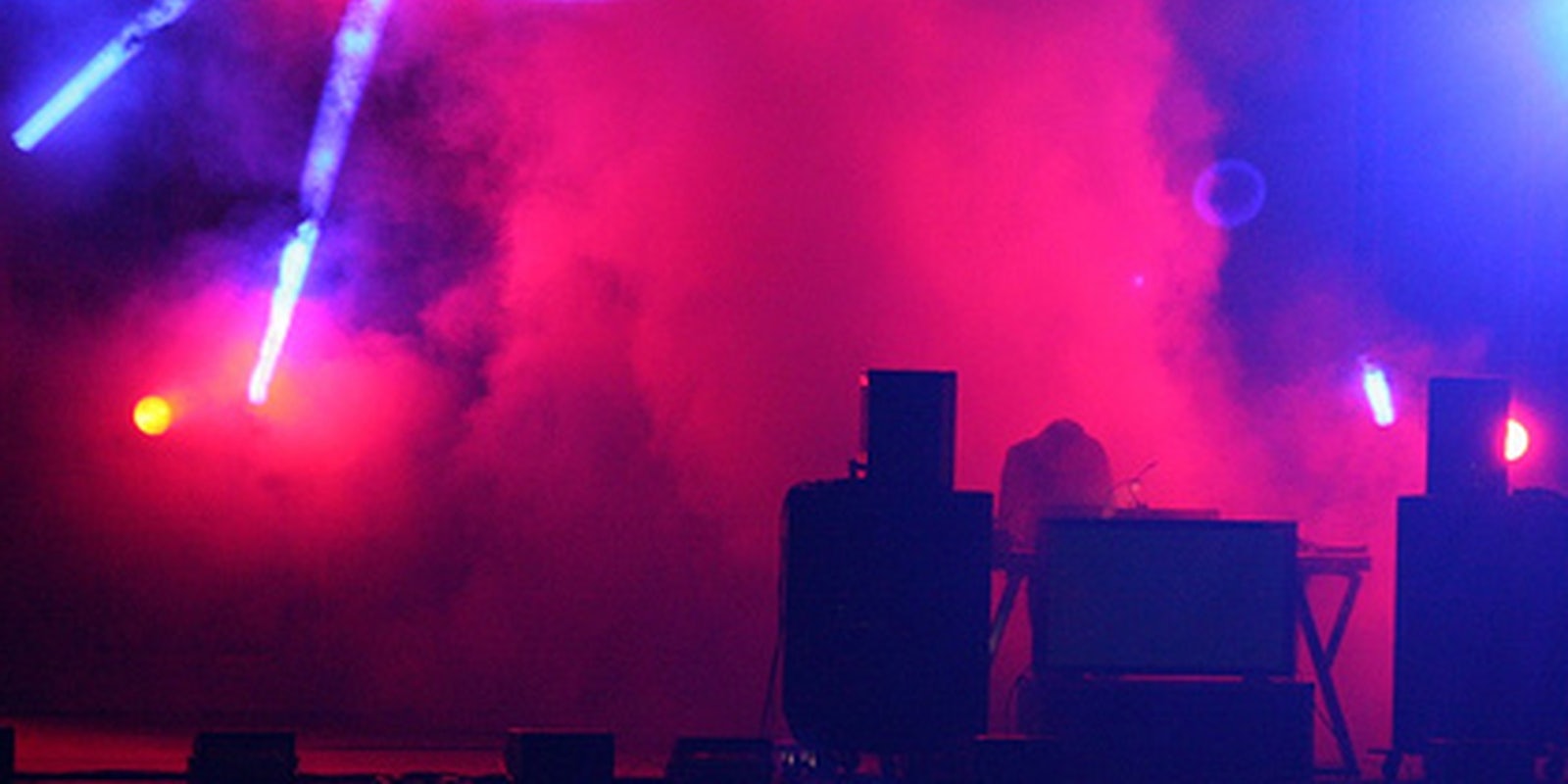I had assumed that my smartphone would be confiscated at the door for Aphex Twin’s New York listening party on Saturday. I’d won a free ticket via online lottery for the show, if you could call it that, and it stipulated that “no mobile phones or recording devices will be allowed” and that guests unable to “remove and securely hold” such gadgets would be turned away.
Excited as I was to hear SYRO, the first new Aphex Twin LP in 13 years, set for release Sept. 23, I was equally curious to enter a Williamsburg club whose name—Verboten—would apply to the use of mobile devices within. A couple hundred Gen-Xers and millennials, stripped of their cold, smooth, rectangular security blankets, forced to otherwise occupy their hands and more directly experience the music blasting into their bodies: What could be more promising?
That the rise of the smartphone has all but ruined the contemporary concert experience is hardly worth arguing. I can recall the first time I noticed as much, in 2008, at a My Bloody Valentine reunion show that followed the release of the iPhone 3G. The glowing sea of screens bespoke mass inattention, even indifference. It was like a room full of people waiting to board a plane or use an ATM, tuning out any aural stimuli as incidental noise.
The SYRO rule was partly an intellectual property matter—neither Warp Records nor Aphex Twin, a.k.a. Richard D. James, was interested in having a bootleg recording get loose—but it struck me as a lovely counterpoint to (or heightening of) James’ bleeding-edge tendencies. Not only has the Irish composer pushed electronic music to unreal new frontiers, he also announced this latest effort via the Deep Web, at an onion address that revealed a tracklist, or if you didn’t use the anonymizing Tor browser, a distressing amount of personal data.
http://syro2eznzea2xbpi.onion
— Aphex Twin (@AphexTwin) August 18, 2014
— Aphex Twin (@AphexTwin) September 1, 2014
To remove phones from the equation, then, was to unplug us from the century that has seen major musicians from Beyoncé to Boards of Canada one-up each other with surprising and viral release strategies: Nobody at this event would be able to tweet about being there, or Instagram the crowd, or sense when they’d received a text message.
It turned out to be an honor system—a man indistiguishable from the lucky music dorks who made up the line walked up and down the sidewalk outside the venue and politely asked us to turn them off before we entered—and halfway through the second track, I saw the telltale glow from two different bros’ phones.
As irritated as I was, I had to admit I understood the compulsion. It took a hefty amount of brute willpower to keep my own fingers from slipping into the pocket where my own addicting totem lay dormant. I compensated by ordering overpriced cocktails and swizzling like mad.
There was no performer present at the club, and the visuals were limited to a spinning, flickering Aphex Twin logo and sparse lightwork. For the most part, we were staring at a blank wall. I found most people showing a private reverence for the restless biomorphic beats and glassy synths of SYRO, some doing freestyle, karate-chop-heavy dance moves, others with their eyes closed and heads bowed. It was as if everyone were listening on their own set of headphones, surely the preferred mode of sonic consumption in the EDM scene. There was an eerie, uniform sense of focus: James’s tunes have undeniable grooves, but they’re the slippery sort, tough to pin down.
That contradictory effect—deprived of connective technology, we were more deeply isolated in our particular understanding of the sounds, which in turn brought us together as a group, applauding nobody at the end of each track—intensified with the strobe-lit middle section, whose breakbeat syncopations and polyrhythms felt like James dragging dubstep out to a snowy forest to bury it alive in a shallow grave. I was reminded of the Facebook thread that began with Skrillex posting Aphex Twin’s twinkly “Film” as his “fav song of all time,” only to have his single-minded fans demand to know where the “drop” was. Here we had an answer.
SYRO lasted an hour, beautiful and distinctly its maker’s, concluding with a quiet, frictionless finale that could have slotted nicely into one of his Ambient Works collections. Someone near the bar, talking loudly, was viciously hushed by those around him. Earlier in the evening, I remembered, another guy had been telling his friend that Aphex Twin and Flying Lotus would be like “the classical music for the future,” and in this unusually formal atmosphere, it seemed he had a point. It wasn’t exactly the “birth of rave” scene from 24 Hour Party People, but the respect for the medium itself was palpable. We had developed a sense of the sacred.
Could listening parties like this one—which saw its audience trickle out into the Brooklyn night with smartphone screens powering up, eager to see what they missed and share what they’d been a part of—be the wave of the future? Might we yet revive a concert culture that places a premium on engagement not only with the music but fellow fans?
James has proved that we can do more with less, and drift back to ourselves in the process. I hope, in a world where musicians are already primed and proud to follow his example, that this one takes hold.
Photo by Ferran Moya/Flickr (CC BY-SA 2.0)


